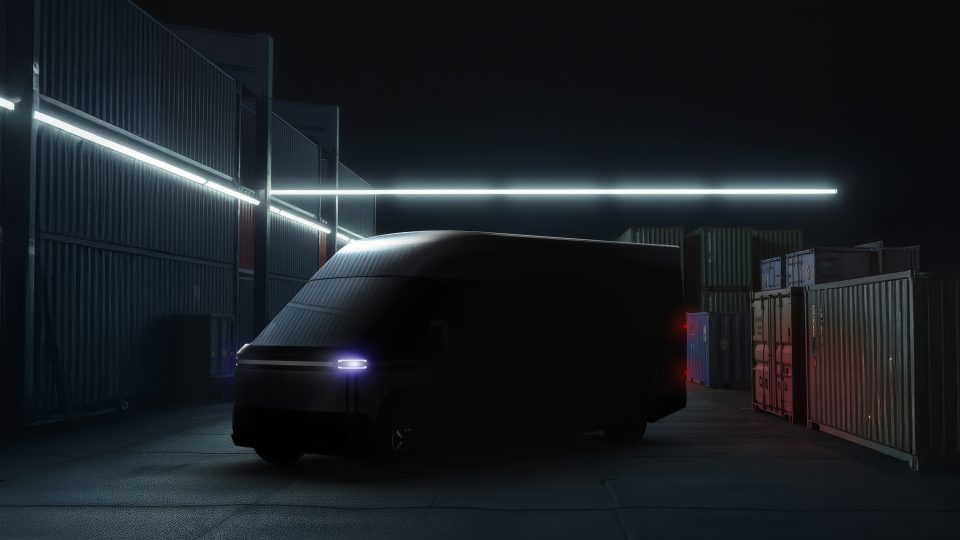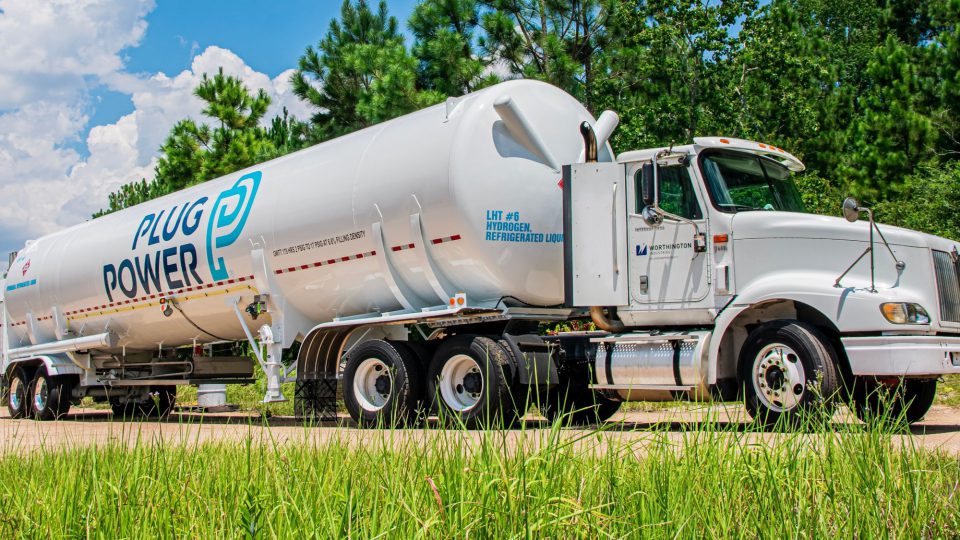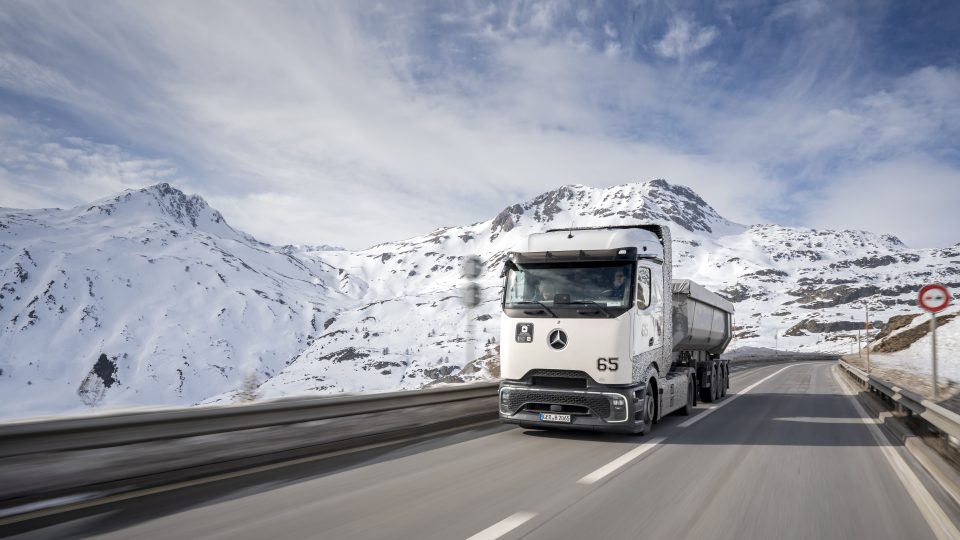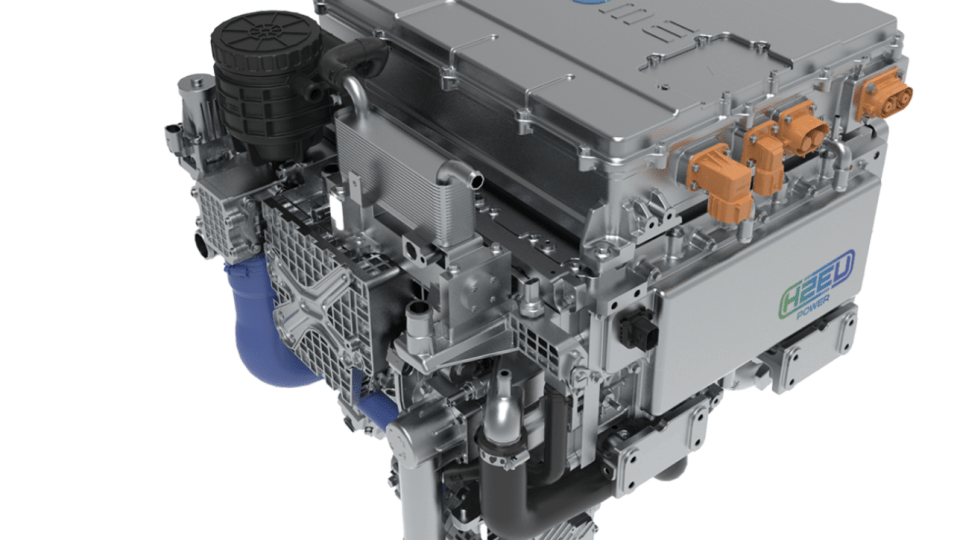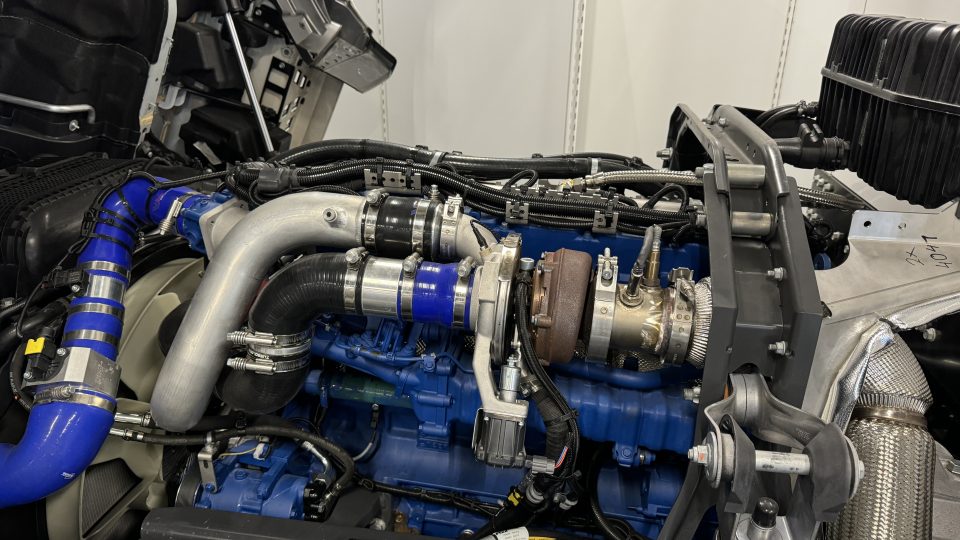Mercedes GenH2 fuel cell truck begins customer trials in Germany
Air Products, Amazon, Holcim, INEOS and Wiedmann & Winz are the very first customers. These companies have the opportunity to gain practical experience in long-distance transport with fuel cell trucks at an early stage, during a trial phase of around one year. On the other hand, the Daimler Truck development team acquires valuable insights into the real-life operations of trucks powered by liquid hydrogen.
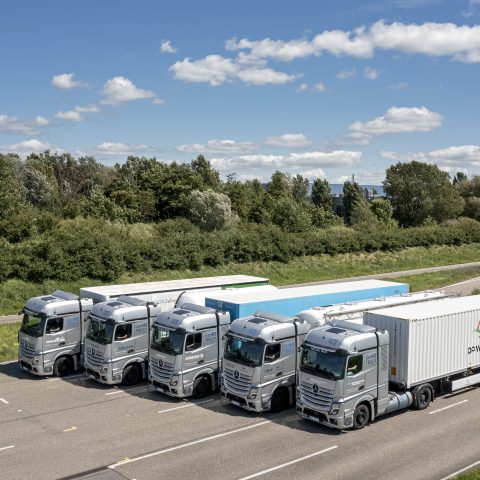
Daimler Truck is entering the next development phase of its fuel cell trucks, namely the GenH2. Air Products, Amazon, Holcim, INEOS and Wiedmann & Winz are the very first customers. These companies have the opportunity to gain practical experience in long-distance transport with fuel cell trucks at an early stage, during a trial phase of around one year. On the other hand, the Daimler Truck development team acquires valuable insights into the real-life operations of trucks powered by liquid hydrogen, learns about specific customer requirements and can take them into account for series development.
The five GenH2 Trucks will be deployed in different long-haul applications on specific routes in Germany, such as the transport of building materials, sea containers or cylinder gases. During these first customer trials the vehicles will remain under the direct supervision and responsibility of the manufacturer.
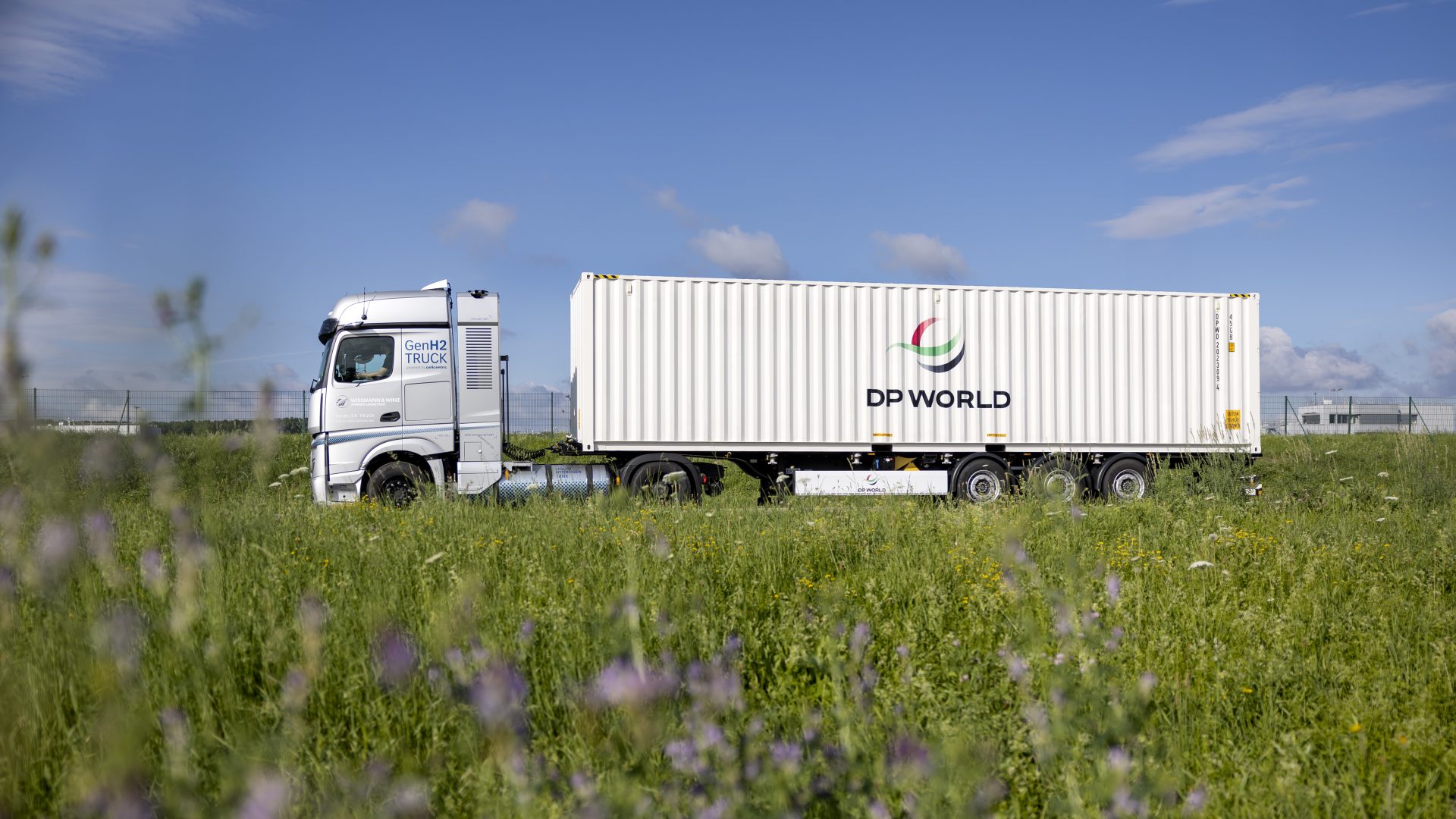
Five Mercedes fuel cell trucks on the German roads
More into details, the five semi-trailer tractors will be used by customers in various long-haul applications throughout the trial period. Amazon will use the GenH2 Truck in its logistics operations in Germany, Air Products for the transport of cylinder gases, Wiedmann & Winz for sea containers, Holcim for building materials logistics, and VERVAEKE – the logistics company of INEOS – for PVC and vinyl transportation.
The development engineers of Daimler Truck have based the GenH2 Truck on the characteristics of the conventional Mercedes-Benz Actros long-haul truck in terms of payload, range and performance. Two special liquid hydrogen tanks and a powerful fuel-cell system by cellcentric, the Joint Venture of Daimler Truck and Volvo Group, enable the high payload and long range.
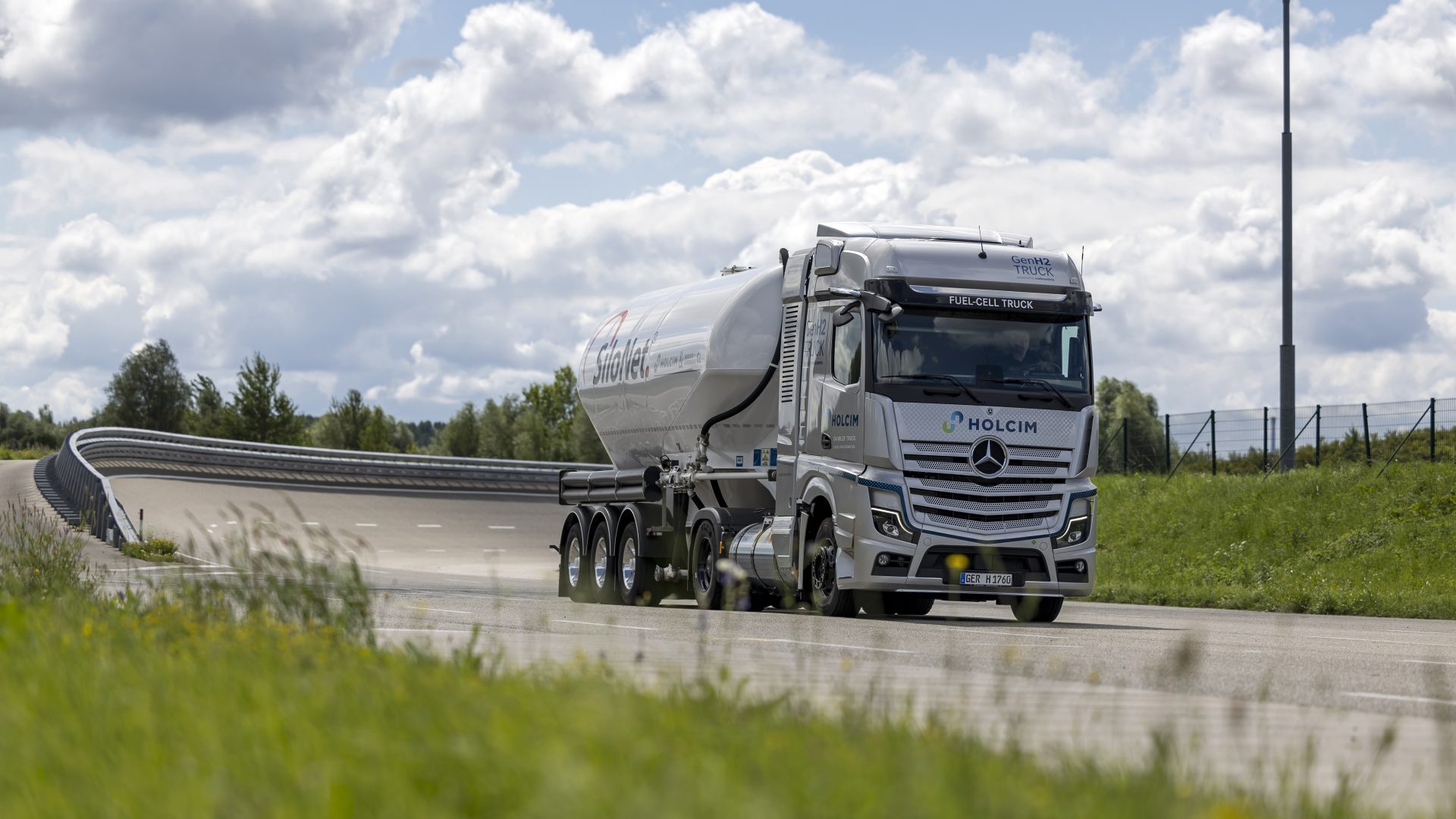
The fuel-cell system of the GenH2 Truck delivers 300 kilowatts (2 x150 kW) and the battery provides an additional 400 kW temporarily. At 70 kWh, the storage capacity of the battery is relatively low, as it is not intended to meet energy needs, but mainly to be switched on to provide situational power support for the fuel cell. A core element of the sophisticated operating strategy of the fuel-cell and battery system is a cooling and heating system that keeps all components at a suitable operating temperature, thus ensuring maximum durability. In a pre-series version, the two electric motors are designed for a total of 2 x 230 kW continuous power and 2 x 330 kW maximum power.
Statements from Daimler Truck and the VDA
“When it comes to decarbonizing transport, we are focusing on battery-electric and hydrogen-based drives”, commented Martin Daum, Chairman of the Board of Management of Daimler Truck. “The transformation can only succeed if green energy is sufficiently and comprehensively available – and for this we need both technologies. With regard to hydrogen drives, we are now taking another important step towards series readiness: we are starting the trials of our Mercedes-Benz GenH2 Trucks in real-life daily transport operations with our customers. However, it is important to note that high-performance CO2-neutral vehicles alone will not be enough to make sustainable transportation successful. This also requires a corresponding charging and refueling infrastructure, as well as cost parity with conventional vehicles”.
“On the path towards the climate-neutral mobility of the future, the potential of all available technologies should be exploited. Particularly when it comes to heavy-duty commercial vehicles, e-mobility cannot be equated exclusively with battery-electric drive. Rather, the fuel cell drive powered by hydrogen must also be considered as part of the diversity of available technologies. Manufacturers have the corresponding models in development and production, and now the political framework conditions must finally be created: a needs-based network of hydrogen filling stations and the associated infrastructure must be built up urgently. There is an urgent need for action for politicians, the German Federal Network Agency and the energy industry”, added Hildegard Müller, President of the German Association of the Automotive Industry (VDA).




